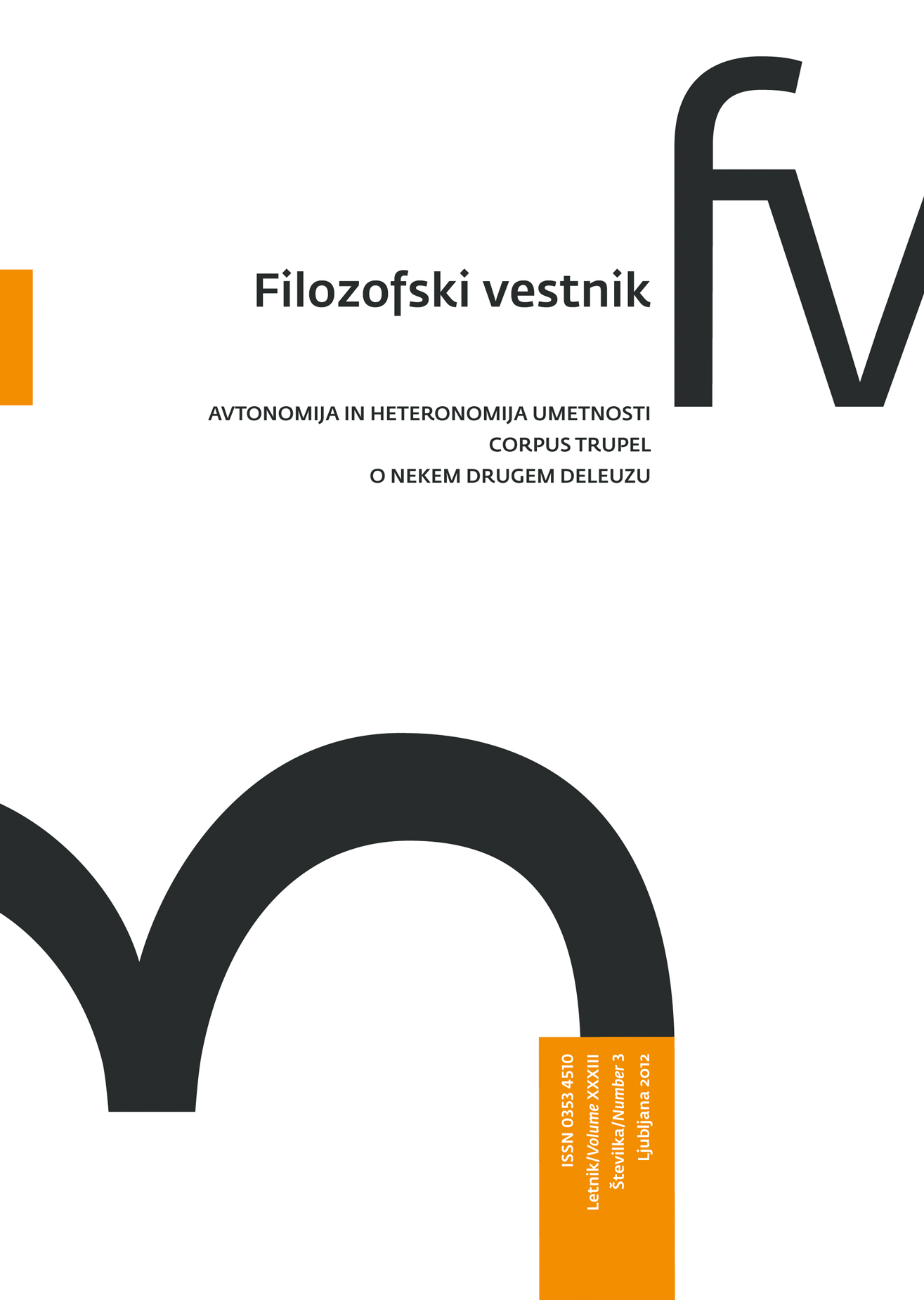Paradiž zdaj: od seksualne osvoboditve k estetski revoluciji v Združenih državah Amerike šestdesetih let
Ključne besede:
Marcuse, Living Theater, Schneeman, erotična osvoboditev, kulturna revolucija, Schiller, igraPovzetek
V pričujočem članku predstavljam povezave, ki so jih umetniki in kulturniški intelektualci skovali med družbenopolitično in seksualno-libidinalno revolucijo v Združenih državah Amerike v šestdesetih letih. Z osredotočanjem na vplivno ter eksemplarično teoretsko delo Herberta Marcuseja obravnavam, kako sta spisa, kot sta Eros in civilizacija ter Esej o osvoboditvi, posodobila klasični pojem »estetske države« v luči kolektivnih libidinalnih in kulturnorevolucionarnih motivov. V nadaljevanju razpravljam o primerih zgodnjega performansa, protofeministične umetnosti in Living Theater, v katerih sta libidinalno in družbenopolitično metaforično spojena kot šifri drug za drugega, bodisi v obliki protesta proti represiji bodisi v podobah kolektivne erotične osvoboditve. Zaključim z opažanji o očitni kontradikciji med Marcusejevo teorijo, za katero se zdi, da je bila močno naklonjena tem avantgardnim težnjam, in njegovim prejkone konzervativnim okusom, ki je vodil k odklanjanju Living Theater in druge tovrstne akcionistične umetnosti.Prenosi
Podatki o prenosih še niso na voljo.
Prenosi
Objavljeno
2016-02-07
Kako citirati
Miller, T. (2016). Paradiž zdaj: od seksualne osvoboditve k estetski revoluciji v Združenih državah Amerike šestdesetih let. Filozofski Vestnik, 33(3). Pridobljeno od https://ojs.zrc-sazu.si/filozofski-vestnik/article/view/4191
Številka
Rubrike
Avtonomija in heteronomija umetnosti
Licenca
Avtorji jamčijo, da je delo njihova avtorska stvaritev, da v njem niso kršene avtorske pravice tretjih oseb ali kake druge pravice. V primeru zahtevkov tretjih oseb se avtorji zavezujejo, da bodo varovali interese založnika ter da bodo povrnili morebitno škodo.
Podrobneje v rubriki: Prispevki





